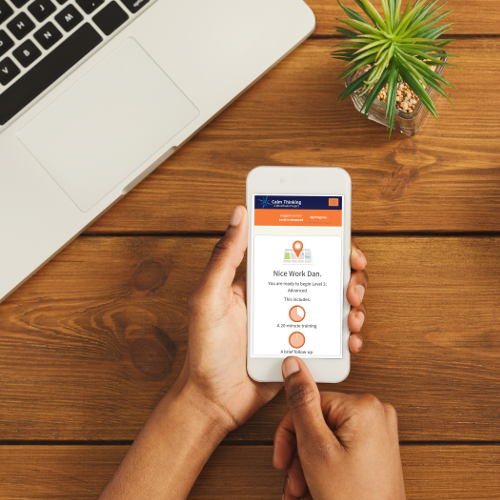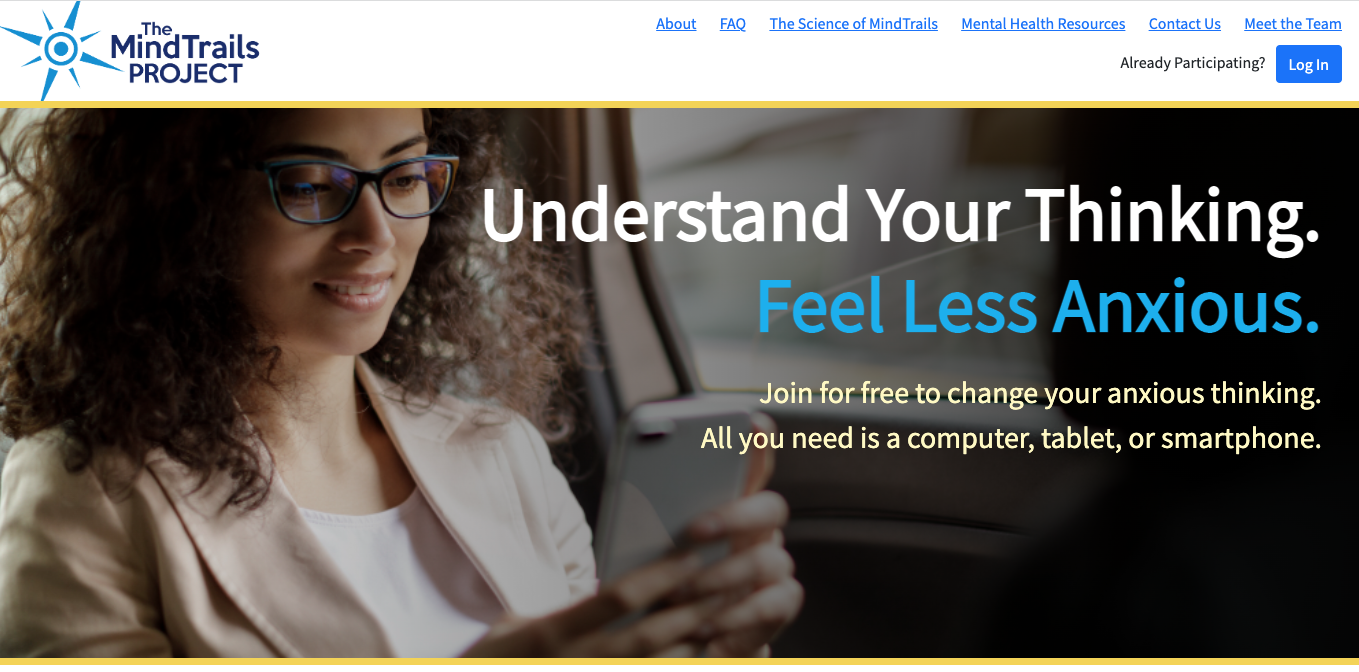May is Mental Health Awareness Month: I’m Tired of Awareness

Bethany A. Teachman is a Professor of Psychology and Director of Clinical Training in UVA’s Department of Psychology in the College and Graduate School of Arts & Sciences. Professor Teachman collaborates with colleagues, students, health care professionals, and individuals experiencing anxiety to understand what causes anxiety and how to help people think in less catastrophic ways to improve mental health care.
I am heartened to see May identified as Mental Health Awareness Month. However, I think the month is poorly named. With an estimated 76.2 million EXTRA anxiety cases and 53.2 million EXTRA depression cases globally due to the COVID-19 pandemic, on top of the extremely high rates of mental illness pre-pandemic, we need to be long past awareness. As a licensed clinical psychologist, Professor, and the Director of Clinical Training in the psychology department at UVA, I am always eager to have data. But we don’t need statistics to raise awareness--we are living it in our offices, our classrooms, and around our kitchen tables. I would like May to be renamed Mental Health Action Month.
We need data, not for awareness, but to effectively take action. With the burden of mental illness this high, action has to take many forms, including structural changes to our healthcare, education, and other support systems to increase access, reduce disparities, and emphasize prevention. We also have to change how we deliver care to those in need. One-on-one care with a mental health professional, whether delivered in person or via telehealth, is an extremely important element of the services we need to offer, but it will never be sufficient to meet the massive need. Digital mental health interventions that do not require costly healthcare professionals and allow for high scalability and wide dissemination, along with “task switching,” where those components of mental health care that do not require advanced training are offered by peers and community members, also need to be central to an effective, mental health stepped care delivery model.
 This is where gathering data becomes essential. The world of digital mental health interventions, such as mobile apps and web programs, has increased exponentially (it is estimated that there are 10 to 20 thousand mental health-related apps!) but has been almost wholly unregulated. The large majority of available programs have not been tested and there is little protection for consumers to know whether the claims being made are valid. For instance, one study of 52 anxiety apps found that only 3.8% had been rigorously evaluated. This has led some popular press to reject digital mental health interventions en masse. This is unfortunate because it misses the signal of opportunity amidst the noise. Research demonstrates that carefully designed app and web programs that emphasize principles grounded in our best available science, study outcomes and use that data to improve their programs, can be effective. Just as we are past the point of prioritizing awareness, we are past the point of simplistic designations of digital mental health interventions as good or bad. They are a mix, like pretty much every other service that is offered. As endorsed by the newly formed Society for Digital Mental Health (full disclosure, I am a Board member), what we need at this stage are data on programs and clear standards about the criteria on which digital mental health services will be evaluated.
This is where gathering data becomes essential. The world of digital mental health interventions, such as mobile apps and web programs, has increased exponentially (it is estimated that there are 10 to 20 thousand mental health-related apps!) but has been almost wholly unregulated. The large majority of available programs have not been tested and there is little protection for consumers to know whether the claims being made are valid. For instance, one study of 52 anxiety apps found that only 3.8% had been rigorously evaluated. This has led some popular press to reject digital mental health interventions en masse. This is unfortunate because it misses the signal of opportunity amidst the noise. Research demonstrates that carefully designed app and web programs that emphasize principles grounded in our best available science, study outcomes and use that data to improve their programs, can be effective. Just as we are past the point of prioritizing awareness, we are past the point of simplistic designations of digital mental health interventions as good or bad. They are a mix, like pretty much every other service that is offered. As endorsed by the newly formed Society for Digital Mental Health (full disclosure, I am a Board member), what we need at this stage are data on programs and clear standards about the criteria on which digital mental health services will be evaluated.

I use my research team’s program as an example. In collaboration with Drs. Laura Barnes and Mehdi Boukhechba’s team in engineering, we lead MindTrails, a web-based (and upcoming mobile app) program that has offered training to reduce anxious thinking patterns to thousands of people in more than 75 countries around the world. We have done numerous studies illustrating we can reduce anxious thinking and often other symptoms of anxiety, and shown that people very, very rarely get worse while doing the program (an important safety check), but we don’t yet do a good job reaching all of the people we want to, and many people drop out early from the program. These data have been essential to guide our next iterations of the work. We observed, for instance, that we had fewer individuals registering for the program who identify as Hispanic than would be expected based on the US census. These data led us to conduct interviews with individuals who identify as Hispanic and report high levels of anxiety to learn how we could adapt the program to better meet their needs. We are now launching a culturally tailored, Spanish language version of the program. We learned also that some of the high dropout was likely linked to our training sessions feeling too long for many users, so our next version of the program is an app that offers more frequent but shorter training sessions, using a microdose model. Without data, we would be guessing how to make the program better.
The millions of people struggling with mental illness deserve action, not just awareness. They also deserve data-driven recommendations about what is most likely to help them. I hope next May will bring a mentally healthier, better cared for, and better-informed society.
- Having a Drink With Your Donkey: The Absurd in Antiquity
- What Happens to UVA’s Recycling? A Behind the Scenes Look at Recycling, Composting, and Reuse on Grounds
- Finding Your Center: Using Values Clarification to Navigate Stress
- UVA Club of Atlanta: Virtual Pilates Class
- UVA Club of Fairfield/Westchester: Cavs Care - Food Pantry Donation Drive
- UVA Club of the Palm Beaches: Hoo-liday Cruise